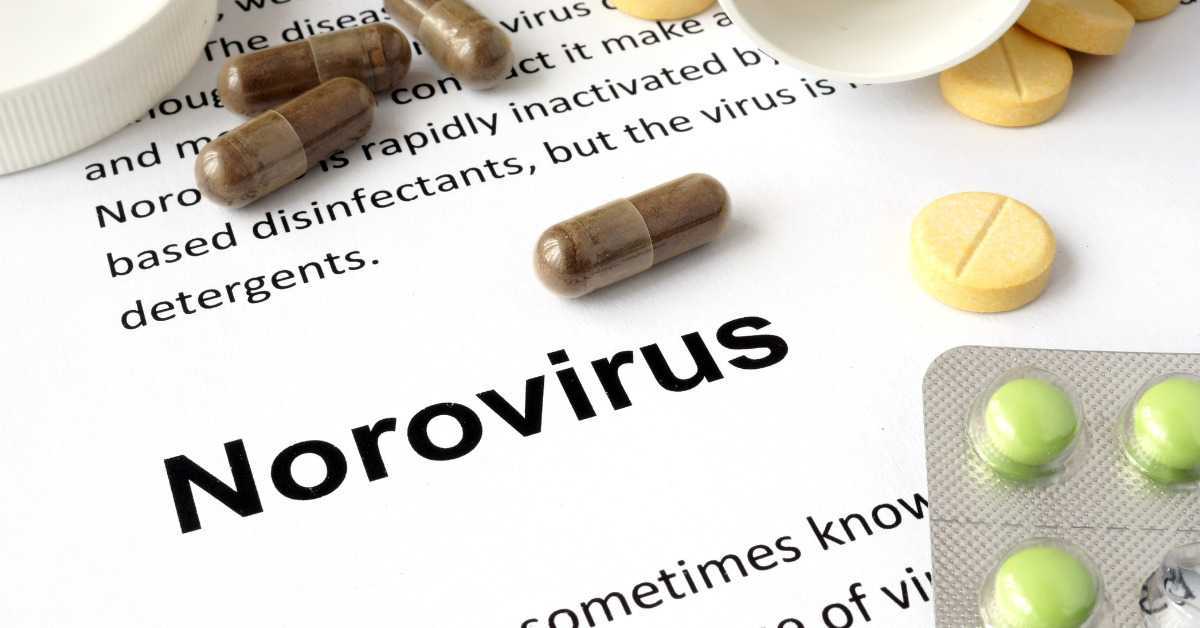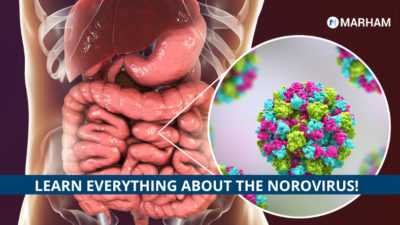There have been reports of a stomach virus from all over the world. Several cases have been found in America, India, and throughout the Bay of Plenty.
All of this has people wondering is there a stomach bug going around? Well, possibly because stomach flu is quite common and usually viral.
So, What is Norovirus (Stomach Flu)?
Norovirus is a highly contagious viral infection that causes severe vomiting and diarrhea. It is sometimes called the “stomach flu” or “food poisoning.”
Noroviruses are a leading cause of disease and death from diarrhea around the world, according to the World Health Organization (WHO).
“An estimated 685 million cases of norovirus are seen annually, including 200 million cases amongst children under 5. The burden of norovirus is significant; norovirus causes an estimated 200,000 deaths per year, including 50,000 child deaths, primarily impacting low-income countries.” –WHO

It is the most common cause of gastroenteritis ( stomach flu) in the United States. Each year, norovirus sickens 19 to 21 million people in the US and causes 570 to 800 deaths.
“Noroviruses were previously called Norwalk or Norwalk-like viruses. They were named after the original Norwalk strain, which caused an outbreak of gastroenteritis in a school in Norwalk, Ohio in 1968.” –Centers of Disease Control and Prevention
Noroviruses are a group of related viruses that include at least 28 different strains. They are classified into two categories, genogroup I (GI) and genogroup II (GII).
These stomach bugs are found in all parts of the world. Outbreaks often occur in crowded places, such as schools, nursing homes, daycare centers, and cruise ships.
The virus is spread through contact with an infected person, eating contaminated food or water, or touching contaminated surfaces.
Most people with norovirus recover completely within a few days without any treatment. However, some people may become dehydrated from losing too much fluid from vomiting and diarrhea. These people may need to be hospitalized and receive fluids through a vein (intravenous fluids).
What are the Symptoms of Stomach Flu?
While the symptoms of stomach flu can vary from person to person, there are some common signs and symptoms that may indicate you have the condition. These include:

- Nausea
- Vomiting
- Diarrhea
- Stomach pain or cramping
- Fever
- Body aches and pains
- Headache
- Fatigue (tiredness)
In some cases, people may also experience a loss of appetite, dehydration, and weight loss. The symptoms of stomach flu typically last for one to two days, although some people may experience them for longer.
What are the Causes of Norovirus?
The following can be causes of the norovirus or the stomach flu:
- Contaminated food: Eating food that’s been contaminated with the norovirus can cause the stomach flu
- Contaminated water: Drinking water that’s been contaminated with norovirus can also cause stomach flu.
- Touching a contaminated surface: If you touch a surface that’s been contaminated with the norovirus and then touch your mouth, you can get the stomach flu.
How Can You Stay Safe from this Viral Stomach Bug?
For those who want to know is there a stomach bug going around it is also important to know how to stay safe from it. There are a few things you can do to help protect yourself from the Norovirus:

1. Wash Hands Often:
Be sure to wash your hands thoroughly and often, especially after using the restroom, changing diapers, or handling food.
3. Cook Thoroughly:
Cook all foods completely, especially shellfish, meat, and poultry.
4. Avoid Contaminated Food:
Do not eat foods that may be contaminated, such as those that have been handled by someone who is ill.
5. Clean Surfaces:
Be sure to clean and disinfect surfaces that may be contaminated.
Who is at Risk of Developing the Norovirus?
Anyone can be infected with norovirus, but there are certain groups of people who are at a higher risk for serious illness. These groups include:

- Young children
- Older adults
- People with weakened immune systems
- Pregnant women
What are the Complications of the Norovirus?
Some complications caused by the stomach flu are:
Dehydration
The main complication associated with norovirus infection is dehydration due to severe vomiting and diarrhea. This can be particularly dangerous for young children and elderly adults at greater risk for serious health complications from dehydration. In some cases, hospitalization may be necessary to treat it.
Serious Complications
In rare cases, noroviruses can also lead to more serious complications such as meningitis (inflammation of the brain and spinal cord), encephalitis (inflammation of the brain), and hemolytic uremic syndrome (HUS; a condition that can result in kidney failure). These complications are more likely to occur in young children and people with weakened immune systems.
What is the Treatment of Norovirus?
If you do become ill with the Norovirus, there are a few things you can do to help ease your symptoms:
- Rest: Get plenty of rest.
- Drink Fluids: Drink plenty of fluids, such as water or clear soup, to stay hydrated.
- Avoid Dairy: Avoid dairy products, as they can make your symptoms worse.

If your symptoms are severe or last longer than a few days, be sure to see a doctor. In some cases, the Norovirus can lead to dehydration, which can be serious.
There is no specific treatment for norovirus, and patients typically recover without any medical intervention. However, patients should drink plenty of fluids to prevent dehydration.
You may take over-the-counter medications such as ibuprofen or acetaminophen to relieve pain or fever. In severe cases, patients may require hospitalization and intravenous fluids.
Prevention of norovirus is the best way to avoid the illness, and good hygiene practices are essential. There is currently no vaccine available for norovirus.
Noroviruses are highly contagious, and outbreaks can occur easily in settings such as daycare centers, nursing homes, schools, hospitals, and cruise ships.
In this time of uncertainty regarding the question is there a stomach bug going around, good hand hygiene is the best way to stay safe. Properly washing your hands with soap and water after using the bathroom or changing diapers, and before eating or preparing food, can help to protect you and others from these viruses.
Should you Consult a Doctor for Stomach Flu?
If you or someone you know is experiencing the symptoms of norovirus, it is important to consult a doctor as soon as possible. This is especially true for children, the elderly, and people with weakened immune systems.
Norovirus can be deadly in some cases, so prompt medical treatment is essential. Click here to consult online with the Best General Physicians in Pakistan via Marham today!
Can’t Find the App?
| Android | IOS |
|---|---|
 |
 |
FAQs
1. How long does norovirus last?
Norovirus typically lasts for about three days. However, some people may experience symptoms for up to two weeks. Symptoms usually begin 12 to 48 hours after exposure to the virus.
2. What kind of stomach bug is going around?
There are many different types of stomach viruses, but the most common one currently going around is norovirus.
3. How do you know if it’s Covid or a stomach bug?
Covid-19 typically causes respiratory symptoms like coughing and difficulty breathing, while stomach bugs usually cause gastrointestinal symptoms like vomiting and diarrhea.
4. Is there a stomach bug tgoing around 2022?
According to recent reports from around the world, there might be an outbreak of the stomach bug in 2022.

